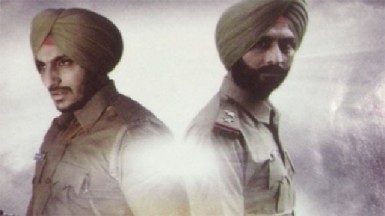(BBC) The move to ban a controversial film on the October 1984 assassination of former Prime Minister Indira Gandhi has a sense of deja vu about it.

This time, the Congress party is up in arms against the Punjabi film Kaum De Heere (Diamonds of the Community), complaining that it glorifies the assassins of Mrs Gandhi, who was shot dead by her Sikh bodyguards for sending the military into the Golden Temple, the community’s holiest shrine.
Apparently, intelligence agencies have warned of violence if the film is released – after all, Mrs Gandhi’s murder in October 1984 sparked anti-Sikh violence, which killed more than 3,000 members of the community across India.
Congress party leaders in Punjab insist that the film “presents murderers as heroes”, a charge that its producer denies, saying that it is just a film about political assassinations.
Many say the Congress party has a record of touchiness when it comes to films involving its leaders and rule.
In 1975, Aandhi (Gale), a film based partially on Indira Gandhi’s life was not allowed a full release by the Congress government.
Kissa Kursi ka (Tale of a Throne), a 1977 satire of her and her son Sanjay, was banned by the government during the Emergency – when civil liberties were suspended – and the prints destroyed.
Eight years ago, the Congress party served a legal notice to the makers of a proposed film on the life of party leader Sonia Gandhi, fearing that it would contain inaccuracies.




